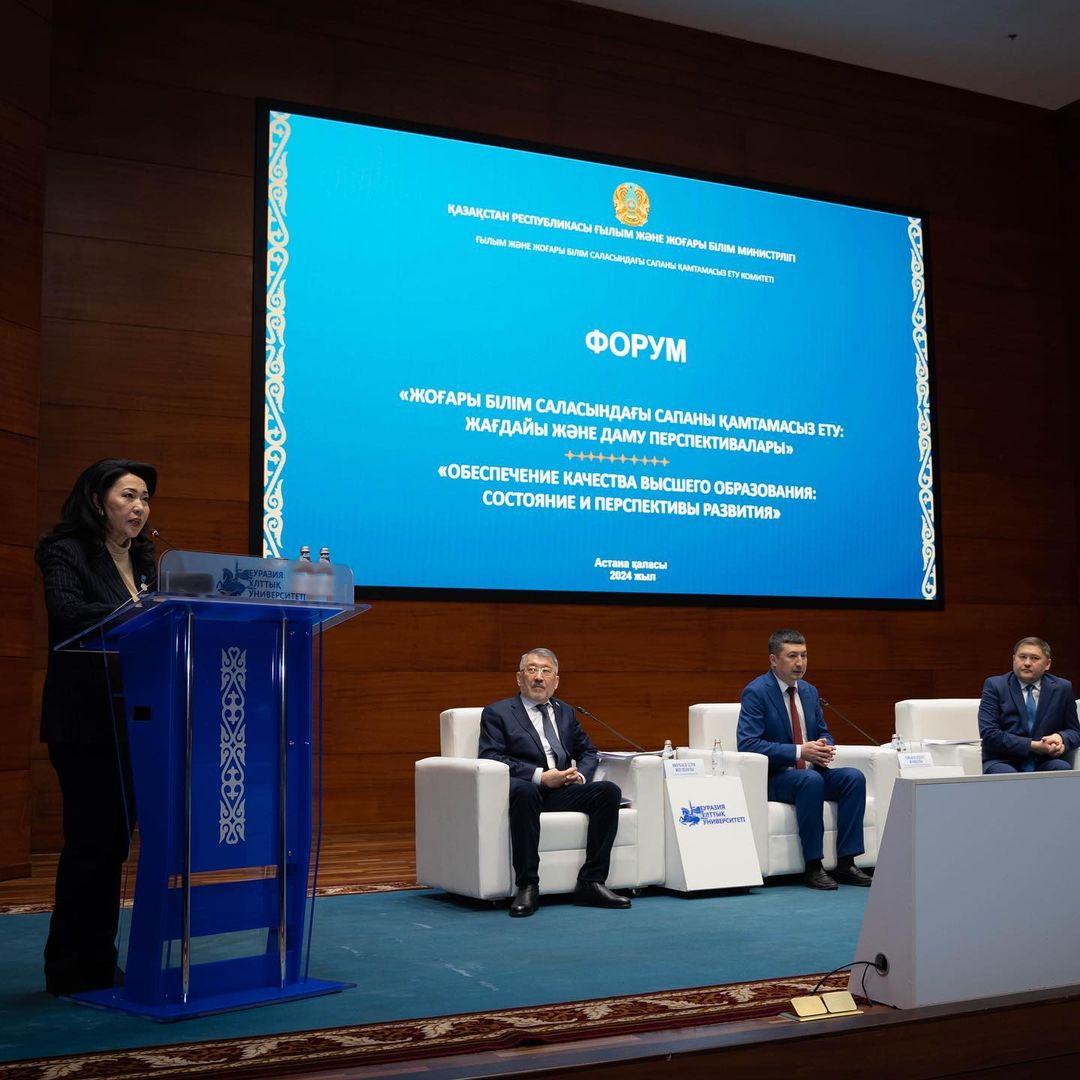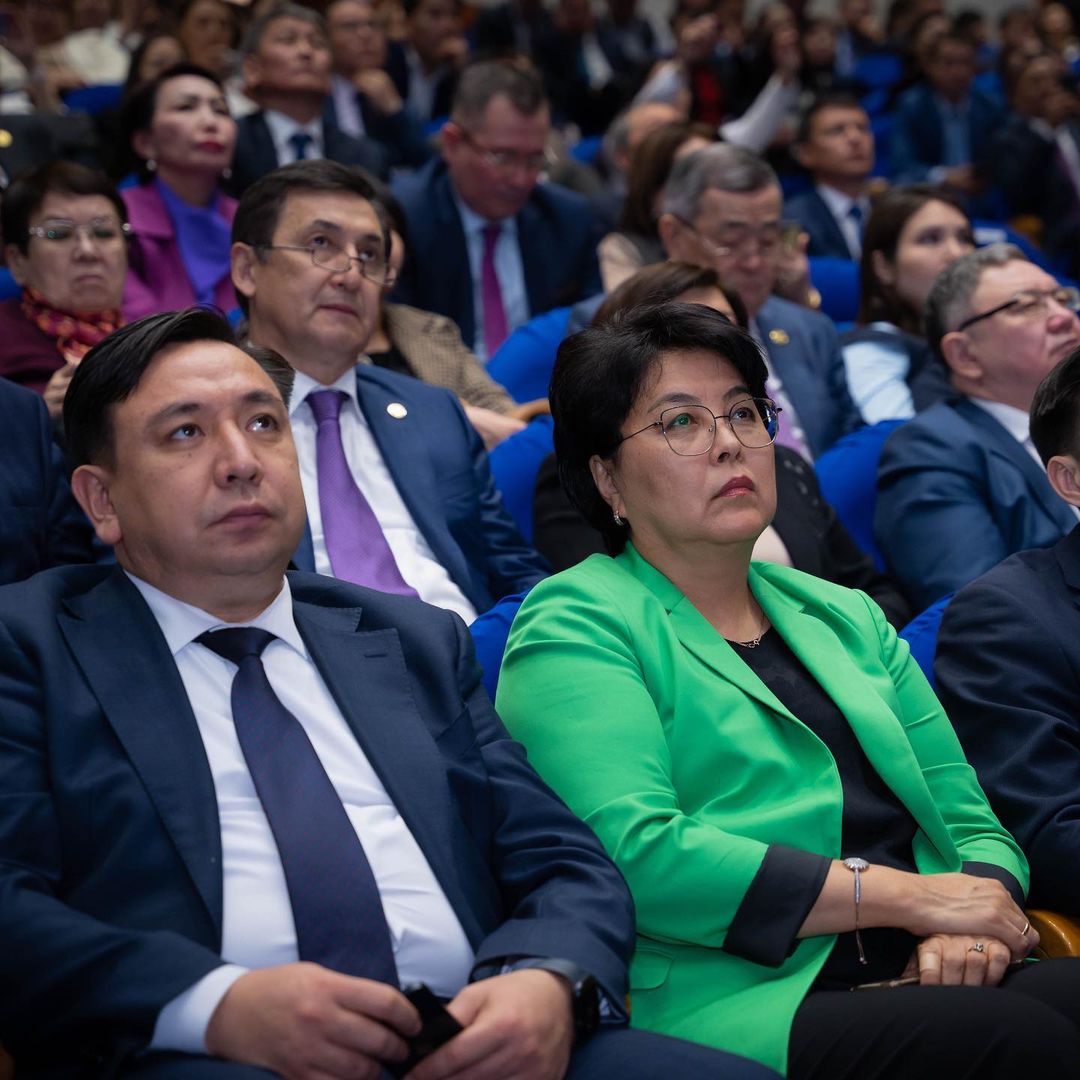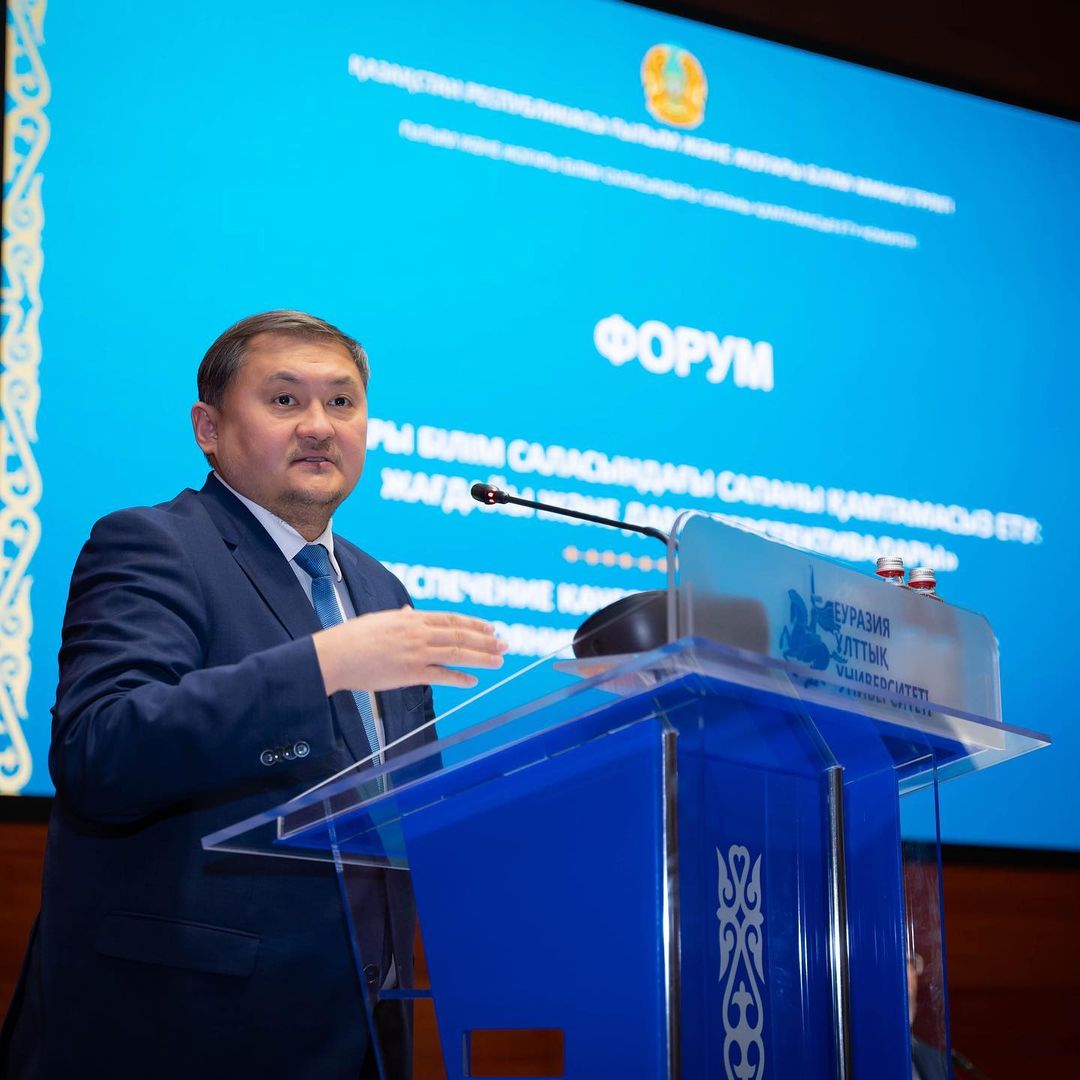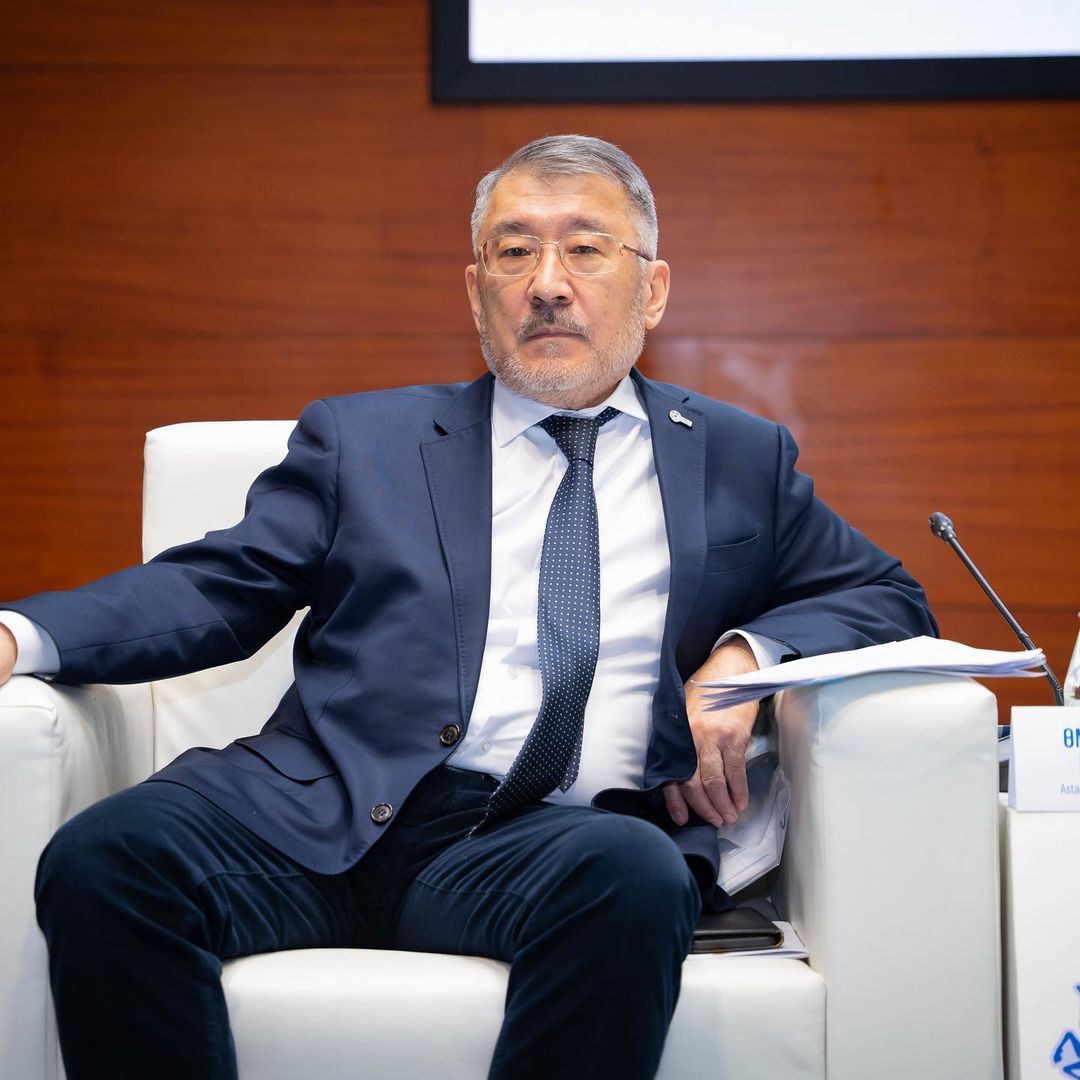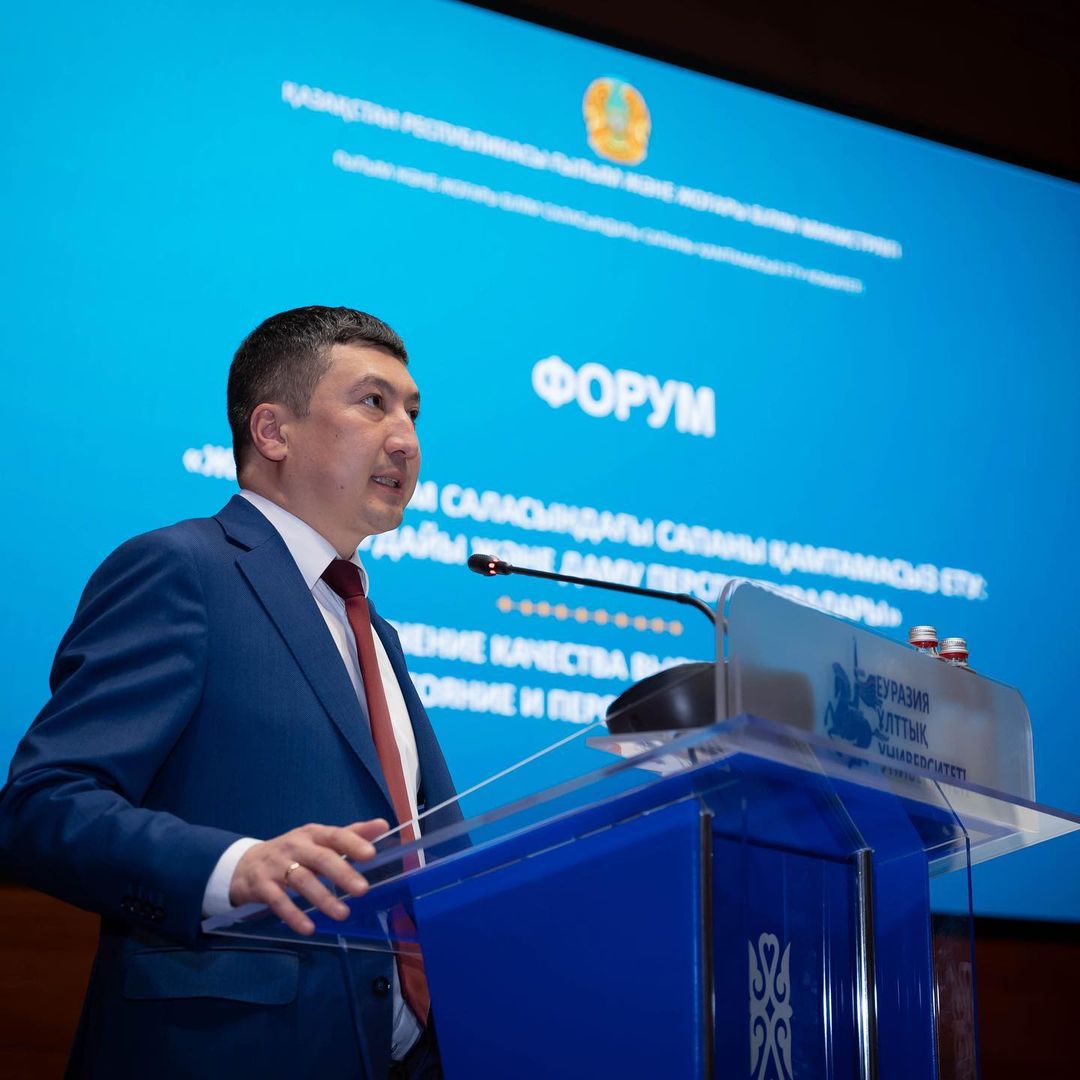The rector of the university, Abdullin R.B., took part in the Forum “Ensuring the Quality of Higher Education: State and Development Prospects”, organized by the Committee for Quality Assurance of Higher Education of the Ministry of Science and Higher Education of the Republic of Kazakhstan.
The Forum was attended by the Minister of Science and Higher Education of the Republic of Kazakhstan, rectors of higher educational institutions, representatives of the NCE Atameken and the European Education Quality Assurance Register (EQAR).
Within the framework of the event, 3 thematic sessions were held: “Tuning the internal quality assurance system of higher educational qualifications”, “Improving the training of scientific personnel”, “Improving the system of state regulation of the sphere of higher and postgraduate education”.
The Minister of Science and Higher Education of the Republic of Kazakhstan Sayasat Nurbek opened the Forum with a welcoming speech and noted that in the next decade the focus will be on skills, and new methods will allow us to assess and develop the core competencies of the future. A holistic education that promotes both academic and personal growth will be critical to student success.
“The world of higher education is in constant flux, as is the quality assurance industry. As new trends emerge, institutions must remain flexible, adapting to ensure their quality control mechanisms are robust, relevant and truly reflect the needs of today’s students. Now the focus in higher education is on training qualified personnel adapted to the current labor market. The quality of a higher education institution is assessed precisely by this criterion. If the labor market likes your products in the form of graduates, they are competitive and have the set of knowledge and skills that are in demand, this is a properly built system within the university. And to implement this task, a new early assessment of students’ skills according to labor market requirements is being launched this year in pilot mode”, the head of the department emphasized.
In the framework of “Improving the training of scientific personnel”, speakers shared their experience in training doctoral students in domestic and foreign universities, recommendations for the examination and review of doctoral dissertations, proposals for a strategy for the development of Kazakh scientific journals, and outlined the problems of retraction of articles by Kazakh authors in foreign publications.
During the thematic session “Improving the system of state regulation of the sphere of higher and postgraduate education”, the speakers touched upon the topic of introducing a new regulatory policy from a “clean slate”, discussing new approaches to conducting state control, improving ICT, and the peculiarities of working in the EPVO IS. Particular attention was paid to the organization of the educational process in universities and licensing of educational activities in the training of medical personnel.
At the plenary session of the Forum, the Committee’s plans for the further development of the quality assurance system of Kazakhstan’s higher education were presented. Particular attention is paid to the model and principles of building an internal quality assurance system and the role of artificial intelligence in improving the quality of higher education.
The director of the human resource development department of NCE Atameken presented the results of the rating of 2000 educational programs of 95 higher educational institutions, which were assessed according to 19 criteria, including: career prospects of graduates, quality indicators of educational programs, achievements of educational programs, assessment of content and general indicators.
It is worth noting that the National Ranking plays a special role in improving the quality of higher education institutions. Therefore, the Forum focused on issues of international practice in creating academic rankings and the methodology for creating a national ranking in the domestic higher education system.
In addition, EQAR President Stefan Levik took part in the Forum. He noted the commonality of problems in ensuring the quality of higher education at European and Kazakh universities, as well as the need and importance of accreditation bodies joining EQAR.

